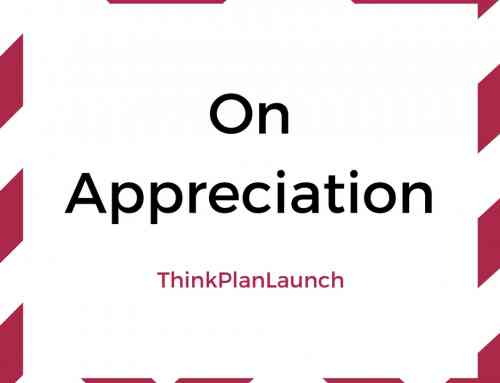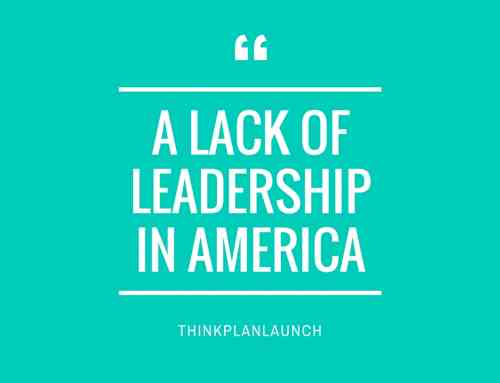Table of Contents
How to Win Friends and Influence People.
One of the most instructive books I’ve ever read on human relations is How to Win Friends and Influence People by Dale Carnegie.
Mr. Carnegie developed this book over the course of many years, having done an incredible amount of research and experimentation.
Throughout the book, the famous Mr. Carnegie provides us a long list of ways to develop sincere, authentic relationships with others. He discusses topics such as active listening, remembering names, the power of a smile, and more.
But one thing clearly stands out above the rest: the importance of making others feel important.
Everyone Wants to Feel Important.
It is human nature to want to feel important. We want others to care about us, and we need to know that we matter in the grand scheme of life.
Even if we don’t desire any particular success, status, or position, we are still social creatures who suffer when we are made to feel unimportant.
If you remember nothing else about interpersonal relations, remember to make others feel important, valued, and respected.
When done with sincerity, this helps you build bridges with others and develop meaningful relationships. Note that without sincerity, or when done in a transactional manner (to get something in return, for example) – it simply doesn’t work. The magic goes away.
What Happens When You Make People Feel Unimportant.
When you make someone feel unimportant, you often hurt their feelings at the same time – and once you have hurt a person’s feelings, you have all but lost them. Trust, open communication, and cooperation are instantly destroyed.
To make an employee feel unimportant is to destroy their work ethic, too. Would you like to work for someone that made you feel unimportant, or like you didn’t matter? Just a cog in the wheel? No, I didn’t think so.
What about in your personal life, with friends, family, or love interests? Would you continue to date someone who made you feel unimportant or useless? Work to maintain friendships with someone who frequently hurt your feelings? Of course not.
How to Make Employees Feel Important.
In our line of work, a common complaint we hear is that it’s tough to motivate people.
How come my people aren’t self-starters? Why do they slack off? Where did their energy go? Who can I hire that will be naturally motivated? What am I doing wrong? Will productivity always be this low?
To address these issues, an employer has a few options.
Measure Individual Motivators and Fulfill Them
First, you can measure motivational factors for individual employees, then structure your organization in a way that fulfills them.
This is the ultimate way to show employees they are important, because it involves an active investment in understanding and accommodating their unique passions (on an individual level).
Depending on top motivators for individual employees, this might mean:
- Changes to comp plans, i.e. financial incentives (Utilitarian)
- Opportunities to lead, advance, and make decisions (Individualistic)
- Assignments involving research, analysis, and discovery (Theoretical)
- Relocation of one’s office, or beautification of their work space (Aesthetic)
- Working to develop structure and consistency in the workplace (Traditional)
- Organizing activities to develop employees’ potential and encourage teamwork (Social)
These are just a few examples illustrating how individual motivators can be fulfilled. More importantly, it also provides us a basis for understanding how and why disengagement occurs in the first place.
Consider the High Theoretical person, for example, who is driven by continuous learning. This person will naturally be motivated to seek out new information, understand the world around them, and get to the bottom of things.
When the High Theoretical is in a job that is very mundane or routine, absent of the opportunity to engage their mind on a daily basis, they will get bored. Then they will disengage, and eventually will leave the position – either voluntarily, or involuntarily due to non-performance (because of their inability to focus on rote work).
Ensure Applicants’ Motivators Are Matched to the Job
Imagine you were to find a High Theoretical person working in a mundane job. Certainly you could take steps towards fulfilling their natural propensity to learn. But wouldn’t it be easier to hire the right people in the first place?
This is a small window into the importance of job benchmarking and pre-hire assessments. By understanding the type of individual who will be naturally motivated in a given job, then screening for those factors, you can match candidates to jobs with precision and certainty.
This catalyzes long-term job fits where employees are naturally motivated and engaged. In turn, this increases performance, productivity, and output for the employer. Everybody wins when the job fit is right.
Coach Managers on Emotional Intelligence
People who possess high emotional intelligence (EQ) are good at making others feel important.
This comes from their higher than average ability to sense, understand, and apply the power of emotion in their interactions. They are good at using the power and acumen of emotions to facilitate higher levels of productivity and collaboration.
EQ is comprised of two dimensions: intrapersonal awareness, and interpersonal awareness. Let’s look at each:
Intrapersonal awareness includes self-awareness, self-regulation, and motivation. It describes how you sense, understand, and process (or react to) emotions on a daily basis.
Interpersonal awareness includes empathy and social skills. It is a measure of how you sense and understand others’ emotions, and how well you manage relationships and build networks.
From a management perspective, having (or working to develop) a high EQ is critical. Leaders who are good at managing their employees’ emotions will naturally raise productivity and motivation.
On the other hand, leaders who do not properly sense, understand, and manage the emotions of their employees will lose in the end. Misunderstanding and mismanaging emotions leads to lost trust, respect, and ultimately the desire to work.
Coach Employees on Emotional Intelligence
Just as it’s important for managers to develop high EQ, so too it’s important for employees to develop high EQ. Employees with high EQ will get along with their co-workers and managers with ease, and tend to have higher levels of personal accountability.
Employees with high EQ understand themselves on a level that catalyzes natural motivation, and they play well with clients, vendors, and business prospects.
In fact, research has increasingly shown that EQ is a better predictor of success than IQ. This may seem surprising at first, but consider the extremes:
Joey isn’t a super genius – in fact, he’s far from it – but he works hard, displays a great attitude, and consistently meets his goals. Furthermore, he is genuine, sincere, and appreciative towards others. People feel they can trust him and he’s great at building meaningful relationships.
Now let’s take a look at John.
John is a very smart individual with strong technical skills, but he often struggles to start and finish projects on time. When he does find the motivation to do his work, he’s very good at it – but these moments are fleeting and inconsistent. John has been stressed for years but hasn’t learned how to manage it in a healthy manner. Because he’s often low on sleep and high on stress, he’s prone to frequent mood swings and has been known to get “snappy” with others.
Now ask yourself, who would you rather work with – Joey or John? Who would you promote into a leadership position? Which one of the two would you trust more with a big project?
The good news is that EQ can be developed and increased with focused effort. The first step is to determine an individual’s baseline with a validated EQ measurement tool, then coach them towards progress. This ultimately leads to higher levels of productivity, motivation, and engagement for the individual and their team.
Show Them They Are Valued and Appreciated
As mentioned earlier, you can’t afford to hurt the feelings of the people you depend on. If you hurt, offend, or step on someone’s feelings or self-esteem, they retract inwards and withdraw their cooperation.
Even if the person whose feelings you have hurt continues to cooperate in the short-term (i.e., an employee continuing to work today because they’re relying on a paycheck at the end of the week), they are sure to “jump-ship” in the long term. Plus, in the mid-term they will probably decrease productivity, subconsciously or consciously.
Note that this is just as true with romantic relationships, friendships, and business partnerships.
If you work hard to respect others’ feelings, value their opinions, and make them feel important, you can move mountains together. But if instead you give offense, trash someone’s opinions, and make them feel meaningless, they are unlikely to lift a finger for you.
Hence, whether or not you use a focused plan to identify employee motivators and develop EQ as suggested above, be sure you stay focused on the fundamentals – and keep in mind everyone needs to feel important, valued, and appreciated.




Leave A Comment